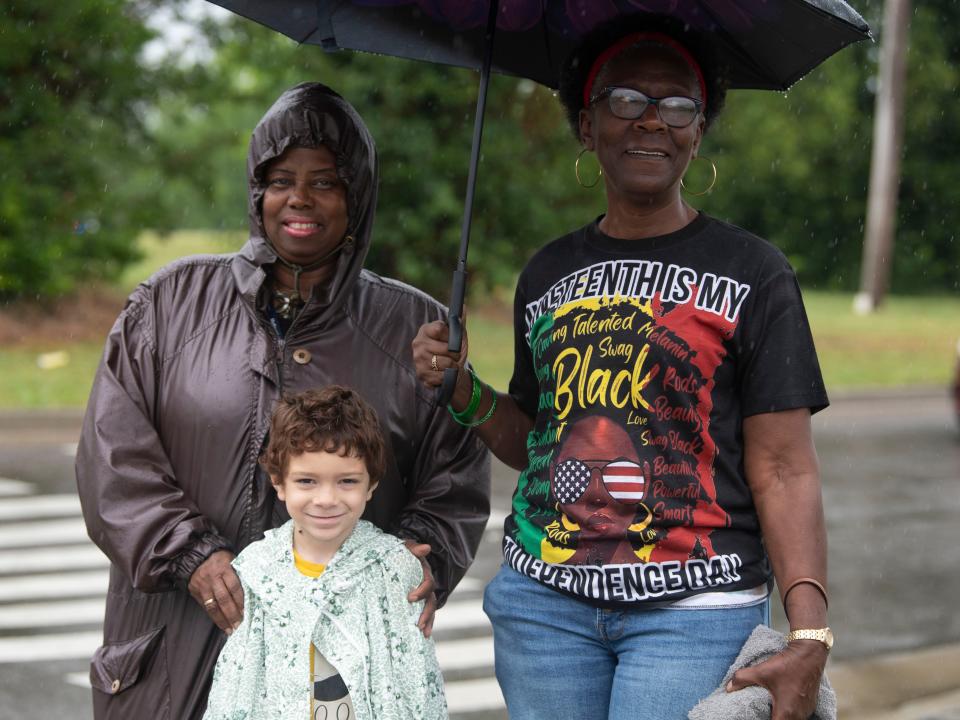Knoxville marks end of slavery three times every year | Opinion
Three times a year in Knoxville we celebrate the end of slavery. On Jan. 1 of every year a program at Mount Zion Baptist Church recognizes the Emancipation Proclamation. June 19 is a federal holiday that takes note of slaves getting the late notice in Texas that they had been freed. We in East Tennessee and a few other places pay tribute to the Eighth of August, when Tennessee Gov. Andrew Johnson freed his personal slaves that day in 1863.
Slavery was introduced into the colonies here in August 1619 when 20 people of African extraction were sold by a Dutchman to planter colonists in Jamestown, Virginia. That was 177 years before the state of Tennessee was established, but for 69 years Tennessee benefitted from the slavery business.

Twenty-nine years after the city of Knoxville was established in 1791, cotton crops in Knox County began to fail in 1820, so there was no need for large plantations of cotton pickers. Consequently, the slave population here did not multiply as it did in the other three large cities of the state. It was also a fact that a number of the early settlers here did not believe in slavery. Statistics show that when the city was founded, there were 163 slaves in a total population of 3,619.
According to figures in one of our major history books, "The French Broad-Holston Country," published in 1946, "From 1795 to 1860 the slave population of the county remained practically stationary, increasing by only five, from 2,365 to 2,370. The number of free Negroes increased to 423."
A number of those who were not free suffered cruelties beyond belief if they tried to get free. Local newspapers often carried ads for runaway slaves: "TEN DOLLARS REWARD. Runaway from subscriber living on Beaver Creek, Knox County, a negro fellow named Joe. He is five feet seven inches, thick set, well made fellow. Both his ears are trimmed. He was last seen in Knoxville, as he can read and write, I expect he will forge a pass. Levi Hinds, June 4, 1800."
Hear more Tennessee voices: Get the weekly opinion newsletter for insightful and thought-provoking columns.
Indeed, many slaves could read and write because there was no law against it. Either the slave owner or his children taught them so as carpenters, brickmasons and other craftsmen they could bring money home after working on a project. Several slaves were able to buy their freedom by working at various jobs.
in addition to being hounded if they ran away, city ordinances regulated their lives as slaves as well. The Knoxville ordinance of 1817 said in part, "Be it ordained by the mayor and aldermen of the town of Knoxville, that if any negro slave settle in this corporation under pretense of hiring his or her time, or shall occupy a house, or by other means reside therein shall be taken up by the city constable, and by order of some justice be committed to jail, there to remain until the owner of such slave pay to the treasurer of this corporation the sum of eight dollars, together with the costs of commitment."
A city ordinance of March 24, 1859, deputized citizens to fight fires and regulated their behavior at the scene. It read, "Every male resident of the city of Knoxville, and such persons as may be present at any fire within the corporation shall and they are hereby required to obey the lawful commands of the Knoxville fire police; and for a neglect or refusal to do so, a white person shall be fined not more than ten nor less than five dollars. And If a person of color he shall be whipped not to exceed fifty stripes." That punishment for Black residents was repealed by City Council on March 19, 1869.
Robert J. Booker is a freelance writer and former executive director of the Beck Cultural Exchange Center. He may be reached at 865-546-1576.
This article originally appeared on Knoxville News Sentinel: Opinion: Knoxville marks end of slavery three times every year

